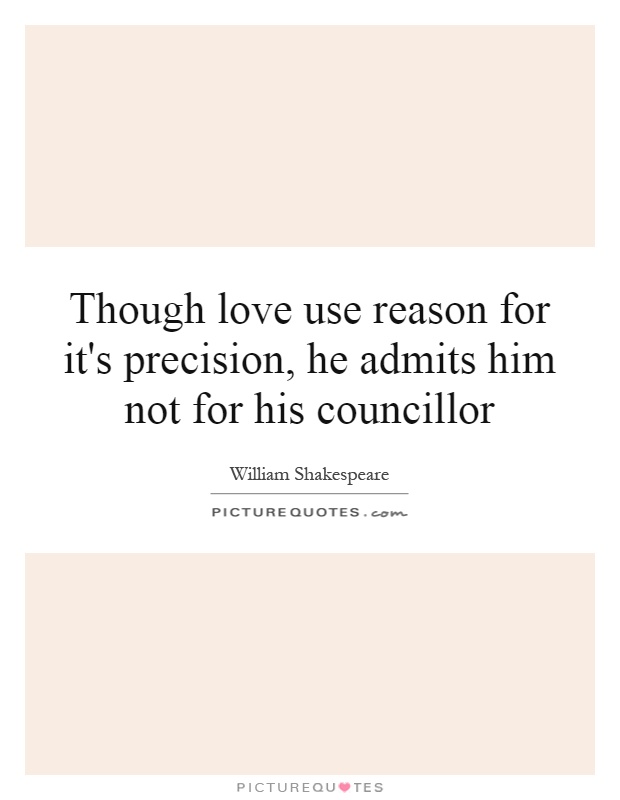Though love use reason for it's precision, he admits him not for his councillor

Though love use reason for it's precision, he admits him not for his councillor
In the world of William Shakespeare's plays, love is often portrayed as a powerful force that defies reason and logic. Characters frequently find themselves caught in the throes of passion, making decisions that go against their better judgment. However, in the quote "Though love use reason for its precision, he admits him not for his councillor," Shakespeare suggests that while love may sometimes employ reason to achieve its goals, it ultimately does not rely on logic or rationality as its guiding force.This idea is exemplified in many of Shakespeare's works, where characters are driven to extreme actions by their intense emotions. In "Romeo and Juliet," for example, the titular characters fall in love at first sight and are willing to defy their families and society in order to be together. Despite the risks and consequences, their love is so all-consuming that they are unable to resist its pull.
Similarly, in "Othello," the protagonist is consumed by jealousy and suspicion, leading him to commit acts of violence against his wife and ultimately leading to his own downfall. Despite the evidence against her, Othello's love for Desdemona blinds him to reason and he is unable to see the truth of the situation.












 Friendship Quotes
Friendship Quotes Love Quotes
Love Quotes Life Quotes
Life Quotes Funny Quotes
Funny Quotes Motivational Quotes
Motivational Quotes Inspirational Quotes
Inspirational Quotes